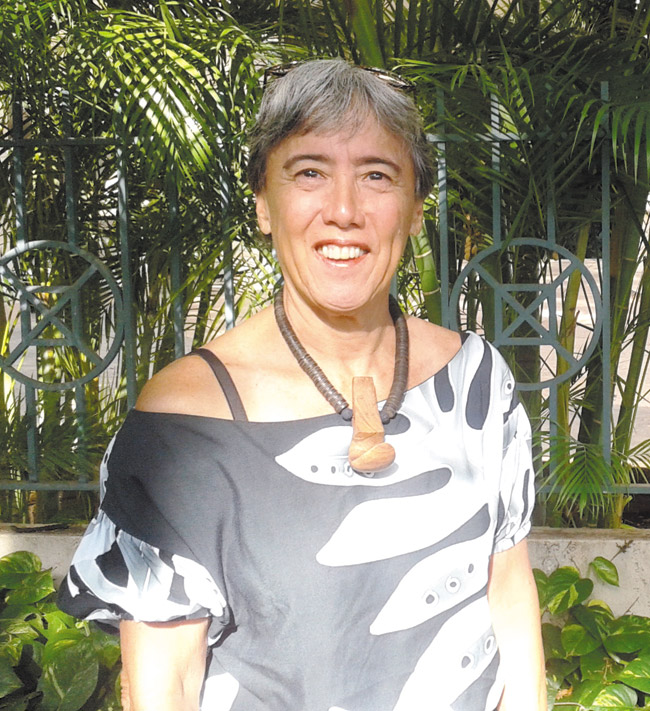Nanette Napoleon
In college, Nanette Napoleon spent a night in Kaupo, an old and remote Hawaiian graveyard on Maui.
Yes, it sounds almost made up, like a scene from a movie, except Napoleon’s very real night in Kaupo became the driving force behind her career.
“From that experience, I developed an affinity for graveyards,” she says. “It became first just an interest, which turned into a passion.”
Since then, she has devoted her life’s work to researching and protecting Hawaii’s cemeteries and graveyards.Through her studies, Napoleon discovered that the community in general has a very close bond with graveyards. They not only serve as resting places for ancestors, but also as cultural and historical signifiers within society.
Despite this, she discovered something unusual. “Over the years, they’ve become less important,” she says. “There’s become a disconnect between our ancestral burial grounds and our busy lives today, and people don’t visit graveyards as much as they used to, and they’ve become abandoned.”
Her findings led Napoleon to form Hawaii Cemetery Research Project, for which she has published cemetery directories for each island. Her work also includes a recorded list of more than 10,000 individual tombstone inscriptions.
For the past 14 years, she also has been researching Hawaii’s ties with the American Civil War. Napoleon, who appeared on MidWeek’s July 2, 2013, cover, calls it her second passion, and one she currently is documenting in a book.
“It’s important to me to tell this kind of long-lost story in a chapter in Hawaii history because most people don’t know this story,” she says of the soldiers from Hawaii who fought in the war.
“For Hawaii to have a connection to that, such a huge thing in American history, it’s huge for Hawaii.”
Still, most people probably best associate her with her work with cemeteries. So much so that she will be the first speaker in a series of talks presented as a collaboration among Historic Hawaii Foundation, Friends of Iolani Palace and Historic Preservation Program, Department of American Studies at University of Hawaii at Manoa.
“I think Bill Chapman (director of Historic Preservation Program) from UH did that because he knows me as the ‘cemetery lady,'” she says with a laugh.
Themed “Preserving Our Historic Cemeteries,” this “Experts” lecture series is designed to shed light on local gravesites that have been forgotten and neglected, and will include topics ranging from maritime memorials to grave-marker preservation. Napoleon’s Jan. 29 lecture, titled “Gravestones and History: Cemeteries as Genealogical Resources,” starts off six sessions that will continue through March.
“The whole idea is to highlight cemeteries as historic places,” she says, “not just simple repositories for the dead, this utilitarian purpose.
“They serve a higher purpose — they reflect our ethnicity; they reflect our culture within those different ethnicities, so I think this whole series is to help people understand the large impact of cemeteries within our community.”
For more information on Historic Hawaii Foundation’s lecture series, visit historichawaii.org. Each lecture is free and open to the public.






